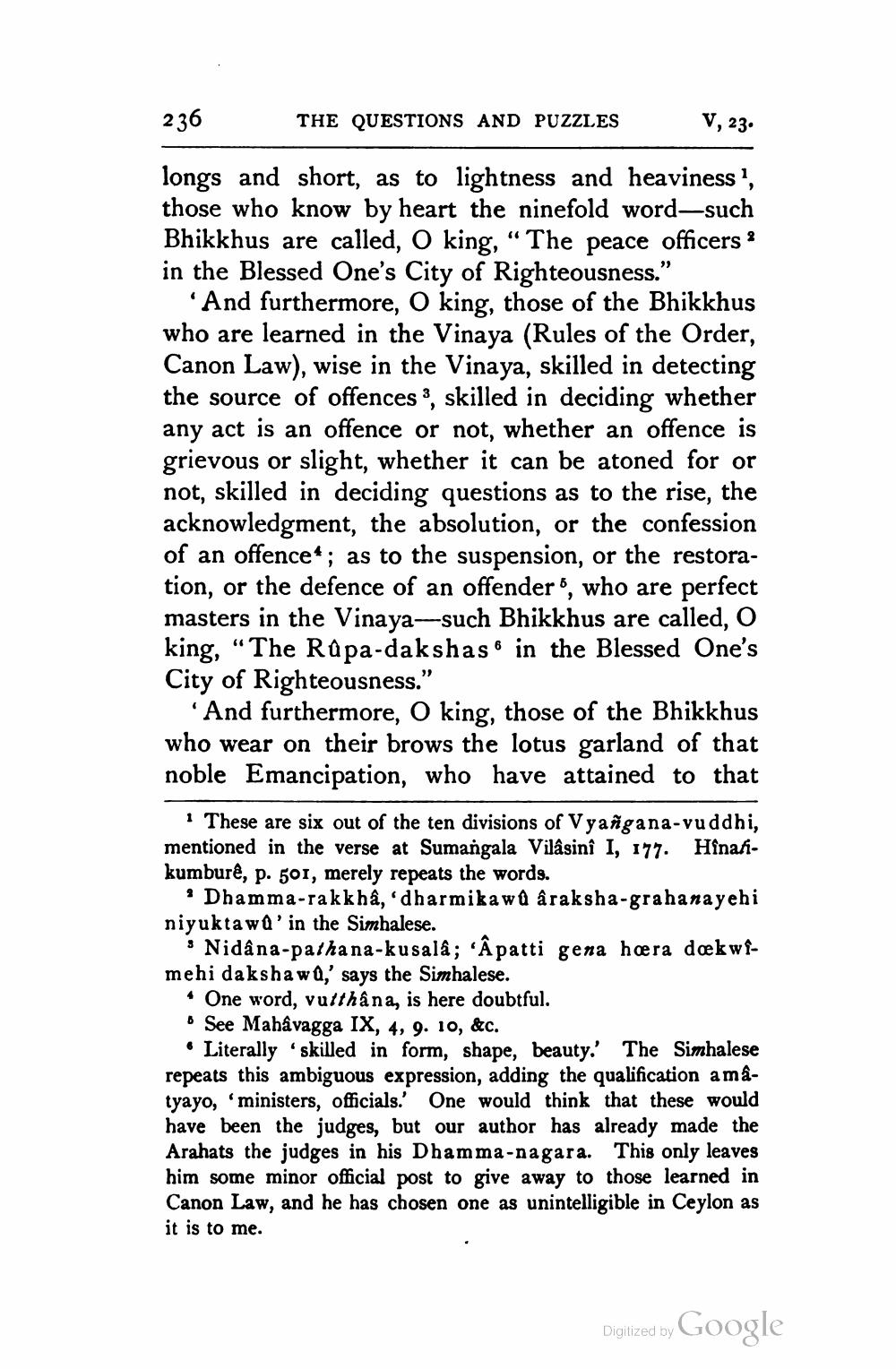________________
236 THE QUESTIONS AND PUZZLES V, 23. longs and short, as to lightness and heaviness !, those who know by heart the ninefold word—such Bhikkhus are called, O king, “The peace officers ? in the Blessed One's City of Righteousness.”
'And furthermore, O king, those of the Bhikkhus who are learned in the Vinaya (Rules of the Order, Canon Law), wise in the Vinaya, skilled in detecting the source of offences 3, skilled in deciding whether any act is an offence or not, whether an offence is grievous or slight, whether it can be atoned for or not, skilled in deciding questions as to the rise, the acknowledgment, the absolution, or the confession of an offence*; as to the suspension, or the restoration, or the defence of an offender, who are perfect masters in the Vinaya-such Bhikkhus are called, O king, “The Rupa-dakshas 6 in the Blessed One's City of Righteousness."
And furthermore, O king, those of the Bhikkhus who wear on their brows the lotus garland of that noble Emancipation, who have attained to that
1 These are six out of the ten divisions of Vyañgana-vuddhi, mentioned in the verse at Sumangala Vilâsini I, 177. Hinafikumburê, p. 501, merely repeats the words.
Dhamma-rakk ha, dharmikaw araksha-grahana yehi niyukta wa ' in the Simhalese.
Nidâ na-pathana-kusala; Âpatti gena hæra dækwimehi dakshaw Q,' says the Simhalese. • One word, vutthâna, is here doubtful.
See Mahâvagga IX, 4, 9. 10, &c. . Literally skilled in form, shape, beauty, The Simhalese repeats this ambiguous expression, adding the qualification amatyayo, 'ministers, officials.' One would think that these would have been the judges, but our author has already made the Arahats the judges in his Dhamma-nagara. This only leaves him some minor official post to give away to those learned in Canon Law, and he has chosen one as unintelligible in Ceylon as it is to me.
Digitized by Google




